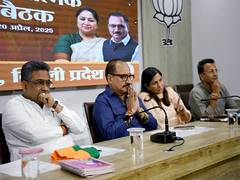SC’s Constitution Bench orders panel consisting of Prime Minister, LOP, CJI for selecting Election Commissioners
New Delhi [India], March 2 (ANI): The Constitution Bench of the Supreme Court on Thursday ordered a panel consists the Prime Minister, the Leader of the Opposition and the Chief Justice of India for the selection of Commissioners in the Election Commission of India.
Appointment of an election commissioner shall be on the recommendation of a committee comprising the Prime Minister, Chief Justice of India and Leader of Opposition in Lok Sabha, said the constitution bench of headed by Justice KM Joseph and also comprising Justices Ajay Rastogi, Aniruddha Bose, Hrishikesh Roy and CT Ravikumar.
The Election Commission has to be independent and it is duty-bound to act in a fair and legal manner and abide by the provisions of the Constitution and the directions of the Court, said Justice Joseph during the pronouncement of the order.
Justice Joseph also added that the hallmark of a substantial and liberal democracy must be borne in mind, democracy is inextricably linked to the power of the people. The power of the ballot is supreme, capable of unseating the most powerful parties.
Supreme Court on Thursday delivered two verdicts, however both were unanimous verdicts.
Justice Ajay Rastogi in its separate judgement added that the process of removal of Election Commissioners shall be as same as of Chief Election Commissioner– Impeachment
The Supreme Court Constitution Bench on Thursday pronounced its order on various petitions seeking reform in the process for the appointment of members of the Election Commission of India.
On November 24 2022, the apex court reserved its judgement on a batch of pleas seeking a collegium-like system for the appointment of Election Commissioners (ECs) and the Chief Election Commissioner (CEC).
The apex court was hearing pleas challenging the constitutionality of the present appointment process of CEC and ECs and contended that appointments were being done as per the whims and fancies of the executive.
The petitions sought the creation of an independent collegium or selection committee for future appointments of CEC and two other ECs.
The petitions stated that unlike the appointments of the CBI director or Lokpal, where the leader of the Opposition and judiciary have a say, the Centre unilaterally appoints the members of the Election Commission.
On October 23, 2018, the apex court had referred PILs to the Constitution bench.
While reserving its order, the court has questioned the Centre on the appointment of former IAS officer Arun Goel as the new Election Commissioner at a “lightning speed” saying the process was completed within 24 hours. The court had perused the original files brought by the Centre on Goel’s appointment as Election Commissioner.
The Central government had said there is no disquieting feature in the appointment.
The bench had clarified that it was not questioning the merits of Arun Goel’s credentials, but the process.
Goel had taken voluntary retirement from his previous posting on November 18 and was appointed Election Commissioner on November 19 and took charge on November 21.
The top court had questioned the Central government for appointing the 1985-batch IAS officer Goel in a single day.
Perusing the file, the top court asked how the Ministry of Law and Justice shortlisted four names for the appointment of Election Commissioner.
It had observed that even among the four names, the Centre has selected names of people who will not get even six years as Election Commissioner.
The Centre is required to pick up people who should get six years as Election Commissioner, said the top court.
Asking why the Centre restricted the name to these four people, the apex court had said there are more senior bureaucrats and how the Centre selected someone instead who will not get the six-year period at all.
It also clarified that the Supreme Court is on the mechanism of appointment of Election Commissioners and Chief Election Commissioners.
Attorney General had responded that there is a mechanism and criteria for selection and there cannot be a scenario where the government has to look back at every officer’s track record and ensure that he completes the six-year tenure.
Under the Election Commission (Conditions of Service of Election Commissioners and Transaction of Business) Act, 1991, an Election Commissioner can have a tenure of six years or up to the age of 65, whichever is earlier.
On a previous hearing, the bench had stressed on “fair and transparent mechanism” so that the “best man” is appointed as the CEC.






